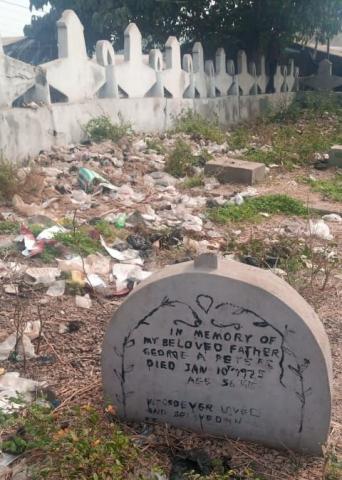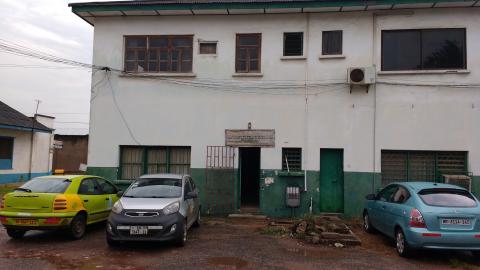Aims and objectives
Portuguese sovereignty in “Portuguese Guinea” from the 16th century onwards was but a fiction, in spite of the erection of forts and the installation of artillery pieces. In 1879 Bolama was declared the first capital of Portuguese Guinea, which until then had been administered together with the Cape Verde Islands.
The Bolama collection is of high historical value, reflecting the fundamental change in Portuguese colonial rule from external administration (directed from the Cape Verde Islands) to significant Portuguese presence and the political and economic penetration of the Guinean mainland. It includes substantial amounts of detailed reports and information on daily life and local conditions as well as important political, economic and legal documents on the highest governmental level.
The collection, initially transferred from Bolama to the National Historical Archives/National Institute for Studies and Research (AHN/INEP) in 1988, was heavily damaged in the Guinea-Bissau war of 1998/1999. The previous pilot project EAP266 allowed for its partial reorganisation and the evacuation of other endangered documents from impropriate storage sites at Bolama Island and the Ministry of Justice into the renovated building of the National Historical Archives in Bissau.
EAP266 pilot project created basic prerequisites for the rescue and treatment of the endangered Bolama documents by assembling the entire collection under safer storage conditions at AHN/INEP. The entire Bolama Collection of Guinea-Bissau is now located at AHN/INEP and is composed of five major sections: the Bolama Colonial Government; the City of Bolama; the Bolama court; the Bolama Port; and the Bolama Custom Office.
Some months ago a range of documents belonging to the Bolama collection was discovered completely mixed up with other materials in the INIC collection. INIC was the first Guinean Research Institution prior to INEP and had inherited much documentation from the colonial “Portuguese Research Centre”. A first analysis of this material shows that historically very important documents have been found from the Bolama Provincial Government of Portuguese Guinea on the highest national level.
There does not exist in any other archive such an extensive collection of Bolama related documents. The particular value of this collection consists in the fact that it contains many documents of local history and the daily life of Africans and colonialists.
The major research project aims at a substantial improvement of the physical situation and the accessibility of this endangered collection in the following ways:
- Advanced training of archival personel to international standards in digitising techniques, in historical analysis capacity and indepth knowledge on the Portuguese colonial administration system;
- Complete digitisation of the Bolama Provincial Government section and partial digitisation of the classified documents series of Bolama City;
- Isolation of document samples of high historical importance that are heavily damaged and strategies for its treatment;
- Untreated Bolama court, custom office and port documents (not listed/classified): First analysis of degradation status, internal document order, cleaning and transfer into boxes for safer storing. Elaboration of document lists (groups) and research instruments in accordance with colonial Portuguese archives’ proceedings. Result: New additional parts of Bolama Collection Survey Catalogue;
- Creation of a revised and enlarged Bolama Collection Survey Catalogue
Outcomes
Due to staff changes at the National Historical Archives, this project was not able to continue. It is hoped that the grant holder will wish to reapply in future.




